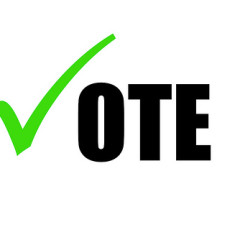 June 4, 1919 is the day congress put forth the 19th Amendment, women’s right to vote. It took 70 years from the historical First Women’s Rights Convention at Seneca Falls, for women to get the right to suffrage. It was a long, slow journey, hard fought and won by those who devoted their lives to it, some of whom, like Susan B. Anthony and Elizabeth Cady Stanton, did not live to see women get the vote. Some of the struggle women went through to get the vote was because of how some Christian leaders taught that women getting the vote went against the Bible’s teachings, as well as that it was a socialist concept and interfered with religious ideals of gender especially as idealized in the case of Catholicism in the Virgin Mary.
June 4, 1919 is the day congress put forth the 19th Amendment, women’s right to vote. It took 70 years from the historical First Women’s Rights Convention at Seneca Falls, for women to get the right to suffrage. It was a long, slow journey, hard fought and won by those who devoted their lives to it, some of whom, like Susan B. Anthony and Elizabeth Cady Stanton, did not live to see women get the vote. Some of the struggle women went through to get the vote was because of how some Christian leaders taught that women getting the vote went against the Bible’s teachings, as well as that it was a socialist concept and interfered with religious ideals of gender especially as idealized in the case of Catholicism in the Virgin Mary.People may have forgotten it, but Elizabeth Cady Stanton worked with a group of 26 women to produce “The Woman’s Bible” in order to challenge the religious views they viewed as hindering women from the vote. This, however, was seen as too risky by many in the movement, who chose to use traditional scripture in debate when necessary. Lucretia Mott was famous for using the bible to debate anyone who thought women were unfit to vote because of Scripture.
Other Americans of faith, such as Quakers who also were instrumental in the abolitionist movement, viewed women as equals with men. Lucretia Mott, one of the leading Quaker abolitionists and suffragists was a pioneer in claiming equality was a divine right in response to those who thought women should not have the vote for religious reasons. Quakers had female preachers earlier than many other Christian sects. They also were among the first to allow a woman to publicly speak in church alongside men. This ability to speak in public equally was a great skill Quaker women used to help attain the vote, in all they did.
Like pilgrims of old, preachers who were Quaker and female also did something unusual that helped them lend their voice to politics: they often traveled alone. Imagine, then, being a woman, brave enough to travel alone to persuade others of women’s equality based on your convictions and faith.
Alice Paul, another Quaker suffragist, in 1916 led hunger strikes as well as bold protests outside of the White House calling out President Woodrow Wilson. There is a historically accurate film regarding the work of Paul and women’s suffrage called Iron Jawed Angels. It was Paul’s imprisonment and placement in the psychopathic ward and then force feeding uncovered by journalists as a human rights violation which led to political pressure from the general public on President Wilson to change his mind regarding women getting the vote.
There were also Jewish women who supported the Suffrage movement in America. Anita Pollitzer was one of the suffragists arrested protesting President Woodrow Wilson and there was Gertrude Veil, who helmed the Goldsboro Equal Suffrage Association and Mary Belle Grossman who later went on to be a judge.
Anna Howard Shaw, one of the first female Methodist ministers was also a suffragist leader. Shaw became a minister even when her family threatened to revoke her college funding and all of her family and friends thought becoming a minister as a woman. Other women leaders in the faith community inspired her to keep her dream. It was this network of women, whom were for temperance and as well as suffrage, that Shaw joined. She became president of the National American Woman Suffrage Foundation which unified and provided organization for the women’s movement. She was against the use of militancy that Alice Paul used.
Another leader of faith in the women’s suffrage movement, was Olympia Brown, considered the first woman to graduate from theological school and be a fully ordained minister in America, also was a suffragist leader and one of those arrested under President Wilson’s orders. Brown was considered one of the best speakers of her day, and it is in no small part due to her training as a minister. Her persuasive abilities were what convinced the then Universalist Church of America to agree she should be ordained after listening to her sermon. She used this same persuasive ability to help ratify the 19th amendment traveling all over the country to speak on its behalf.
It is important we do not take our rights for granted. Many women worked hard to make sure women have the right to vote and for equality. They had faith in the future of equality and knew it would be no easy task. Faith can prepare a person and give a person the stamina and wisdom needed to stand by one’s convictions for justice and equality, even and especially when it may not be popular, but it is right.









